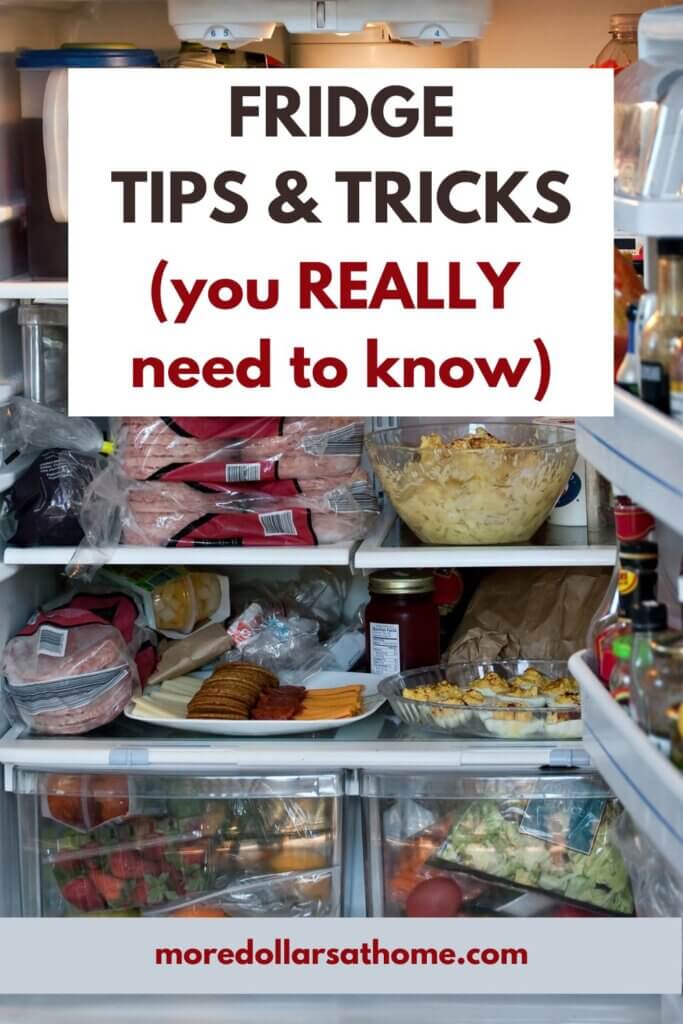These refrigerator tips are a great way to keep your fridge clean and running well to extend its life!
How many of us take our refrigerators for granted? It’s hanging out there in the kitchen, it’s cold, it holds food…right?
BUT, you could be surprised realizing that treating your fridge properly (and the food in it) can literally save hundreds of dollars every year. And give you lots of extra years on the life of your fridge before having to replace it.
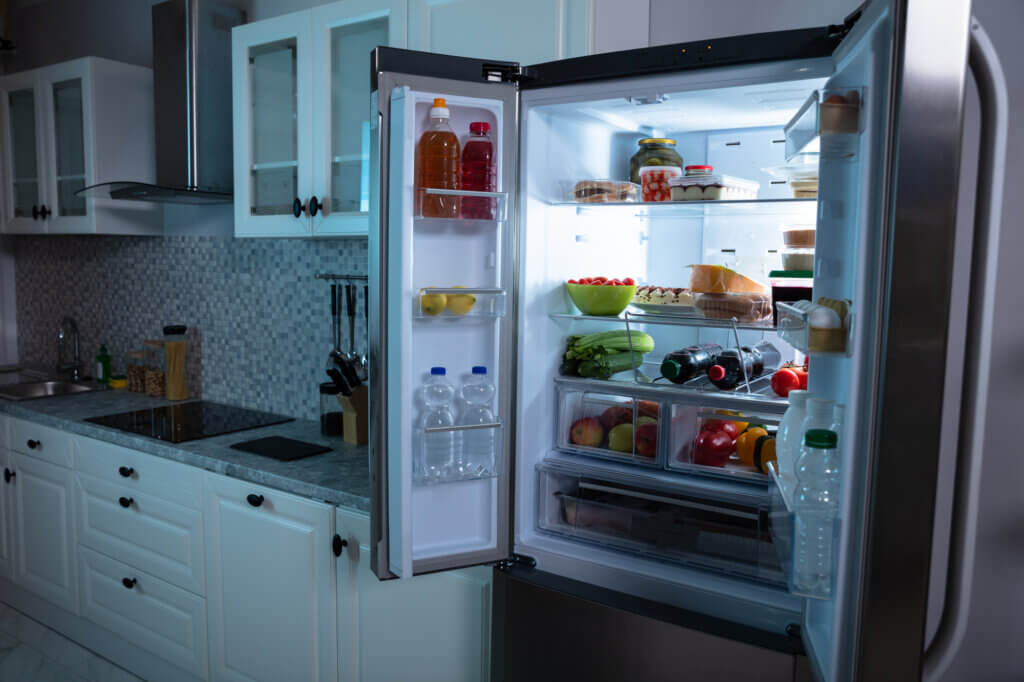
Refrigerator Tips and Hacks You Need to Know
We’ve rounded up all the very best fridge tips and want to share them with you here. Some of these may seem like common sense, but you’d be surprised the small and simple things you don’t think about when it comes to maintaining such a large and crucial appliance!
Read through these refrigerator tips for a great refresher on how to take care of your appliance, which can save you money by helping your fridge last longer while also ensuring that it’s running at full capacity to properly store your food.
Here’s our best tips on storing food in your fridge!
Keep the refrigerator door closed!
This may be obvious in theory, but sometimes you may not close the door all the way or something could block it from sealing all the way. It’s also not a good idea to stand in front of the open fridge for long periods of time, as this lets out all the cold air.
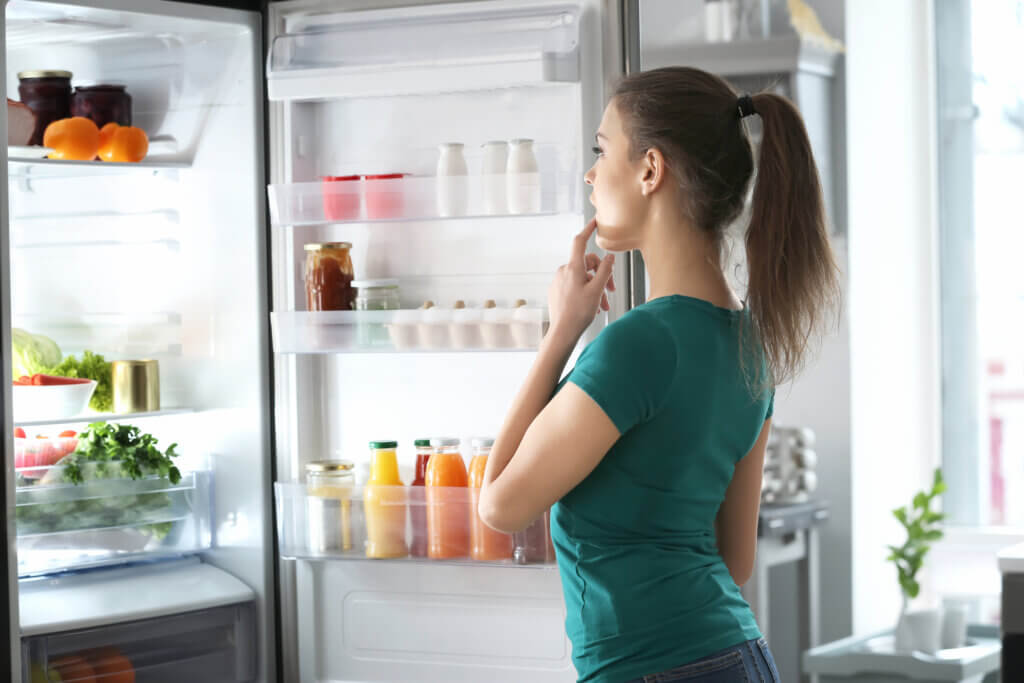
Never store raw food above cooked food.
Bacteria from raw food can easily contaminate cooked food, and things like raw meat are a big source for this. Store raw food lower in the fridge and separate from cooked food as much as possible.
This can help your food last longer and will also prevent you from getting sick! As a rule, try to keep cooked food to the top shelf or middle shelf and anything raw to the bottom shelf.
Be extra careful with raw and cooked meat.
Meat especially is important to store separately from other things in the fridge, and/or covered by plastic. Even better than plastic wrap are these meat storage containers.
Cross contamination can ruin food and make it unsafe to eat, so it’s very important and always a good idea to store things properly!
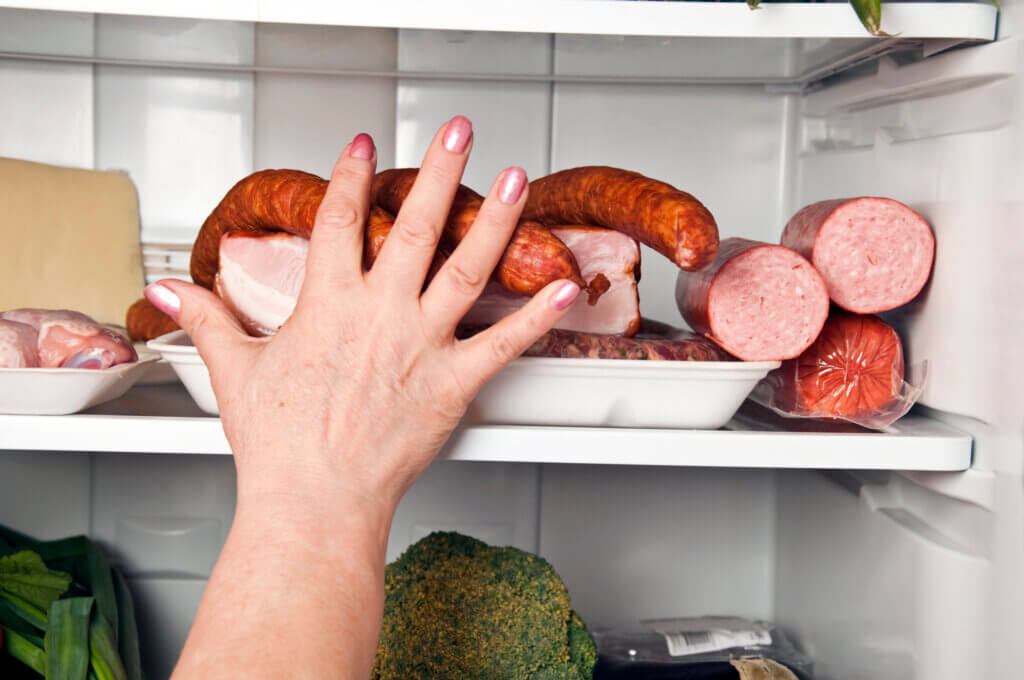
Don’t put warm food directly into the fridge.
This is due to certain bacteria thriving in hotter foods. If you let the food come down to room temperature first, this will discourage bacteria and it will be safer to cover and store.
Rotate your vegetables.
Keep track of your fruit and vegetables and when you buy them. Rotate them so the older ones are in the front and the newer are in the back, or in specific fridge organization drawers that remind you what you bought first. You’ll waste a lot less produce this way!
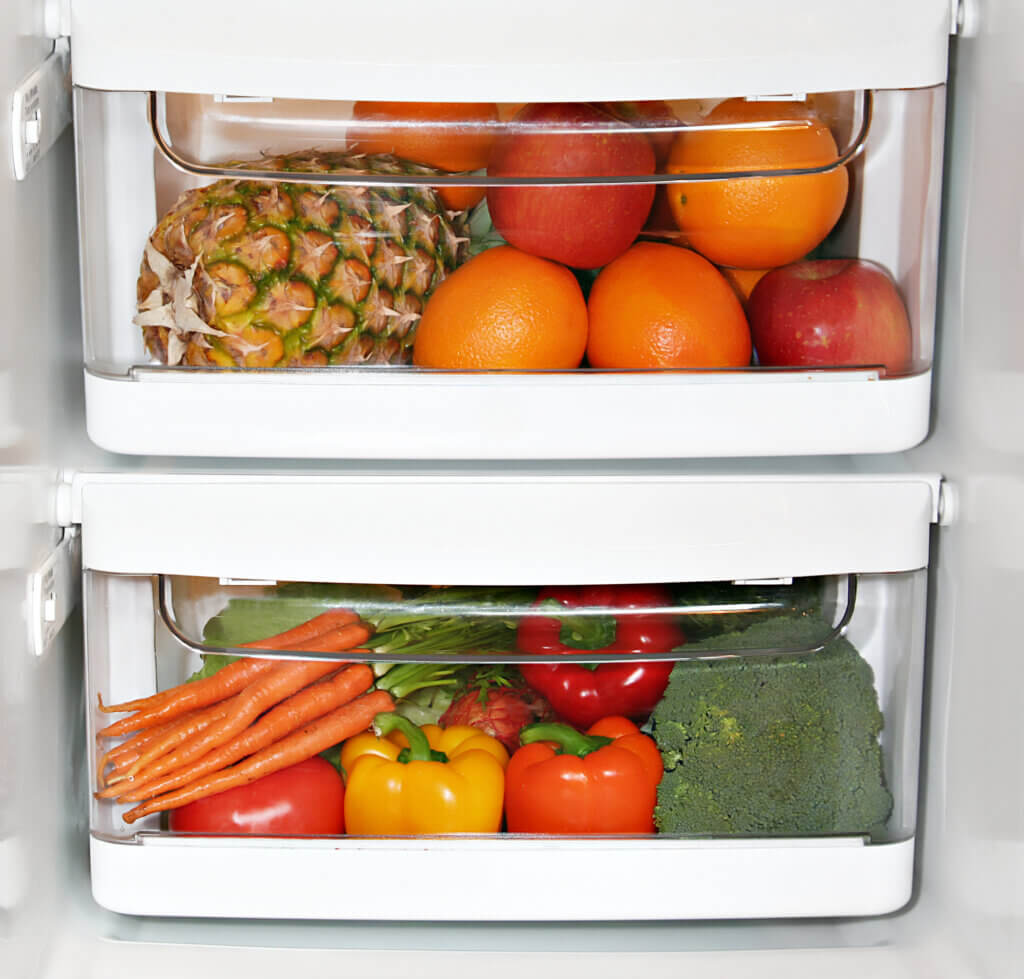
Tip: Label one drawer as first to use, and a second drawer as recently added.
More Refrigerator Tips – Store Eggs Properly.
Don’t store eggs in the door compartments. This is more for older fridges with the built in compartments but just know eggs stored in the door won’t last as long. Every time the fridge is open, the contents of the door are affected!
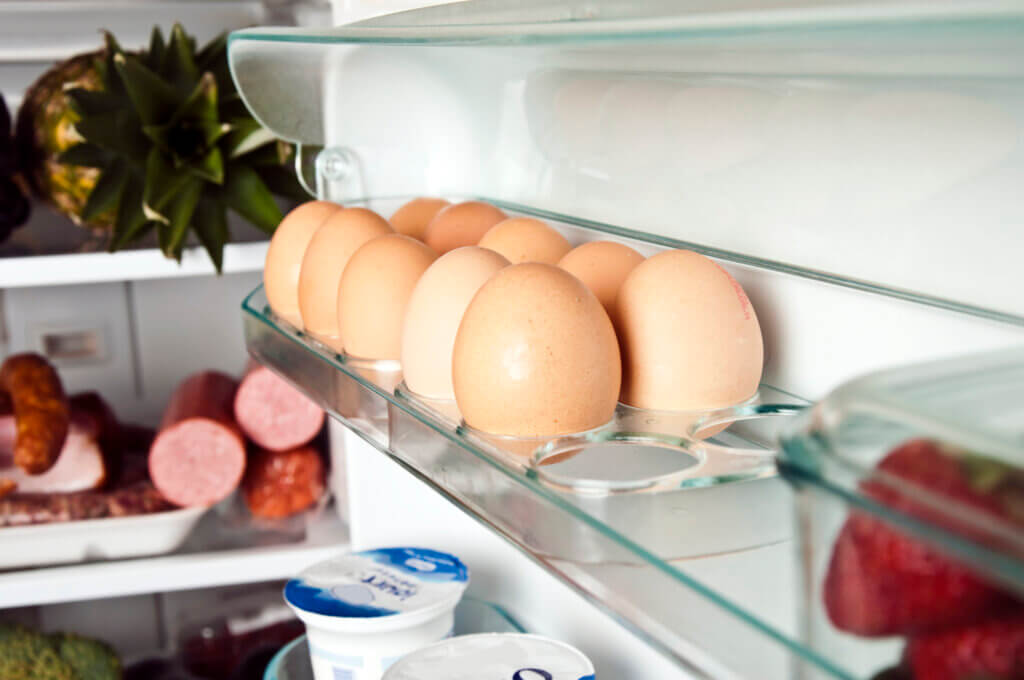
These grid egg basket containers work great. Even if you leave eggs in the carton, be sure to place them at the back of the fridge so they last longer. Don’t keep them in the door!
Keep an eye on your condiments!
Remember that jar of pickles you opened two weeks ago and then shoved in the fridge behind jars of jam? Or the hot sauce you’ve had forever?
Condiments store well in the fridge doors and they stay in sight so you remember to keep using them. Keep an eye on the “best before” dates and try to use everything up by then.
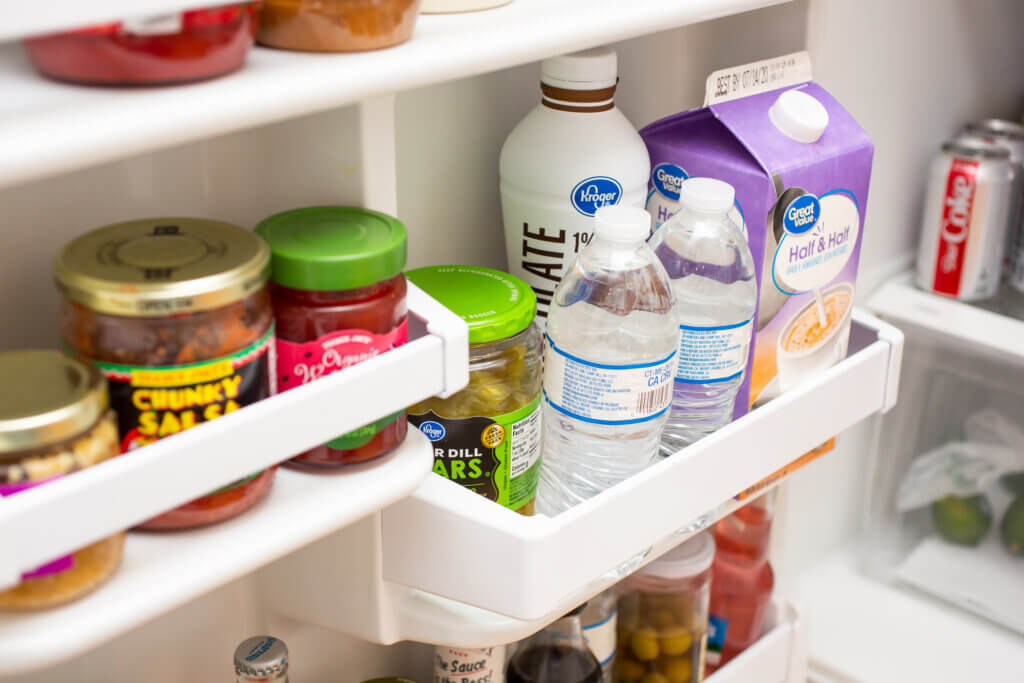
Best Before Dates…
Almost everything we buy has a best before date and yes, it is a good idea to try our best to use these up by that date. BUT, in many cases those dates are a guideline, meaning, they are NOT written in stone.
Always use common sense and check foods for unusual colors, odors, or textures.
In many cases, best by dates are somewhat exaggerated in hopes that you’ll get rid of the product before you really need to and make another purchase.
You can save a lot of money by simply checking products and trusting that you’ll catch any expired or spoiled foods without needing to rely on the best by dates.
Here’s our top tips for maintaining your refrigerator:
Do’s and Don’t in Using a Refrigerator
Clean out your fridge regularly.
It may not be a fun or easy chore, but this is a sure fire way to keep everything clean and safe to eat! Just pull everything out and give all of the shelves a good wiping down with some fridge cleaner or even soapy water.
I recommend doing this 3-4 times a year for maximum safety.
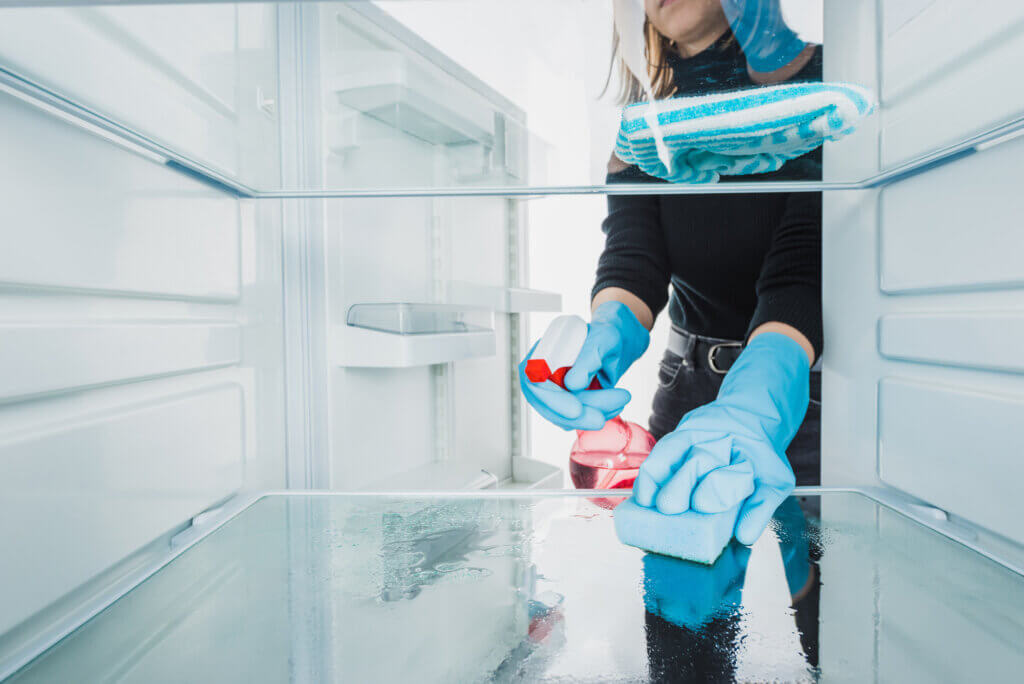
Defrost your fridge freezer on a regular basis.
If you’ve ever noticed a buildup of frost in your freezer, it’s probably because you haven’t done a good defrost recently. I would recommend doing this on at least a yearly basis.
A good way to prevent frost buildup is to avoid opening the freezer door for long periods of time, and also ensuring that the things going in are going in cold.
Need to defrost your freezer? Here’s the fastest way to defrost a freezer!
Clean fridge coils and condenser regularly.
In order to do this, you’ll need to unscrew the cover on the back to expose the coils and condenser.
If the coils and condenser are covered in dirt, dust, or grime, they won’t be able to release heat as efficiently and will have to work harder, which will almost always shorten the lifespan of your fridge.
Use your vacuum and this fridge condenser coil cleaner to remove any dust and grime.

Use dollar store placemats to cover fridge shelves.
This is a great way to keep things clean and your fridge organized. In many cases, you’ll be able to simply remove the placemats and wipe them down for a quick clean.
These fridge shelf liners work great and are completely washable. You may also be able to avoid potential damage to shelves from heavier dishes or containers.
Make the most of the fridge space.
For organization purposes, you can install things like these fridge lazy susans or additional drawers. You can also use a dry erase marker to label shelves or drawers in your fridge so you never forget what goes where.
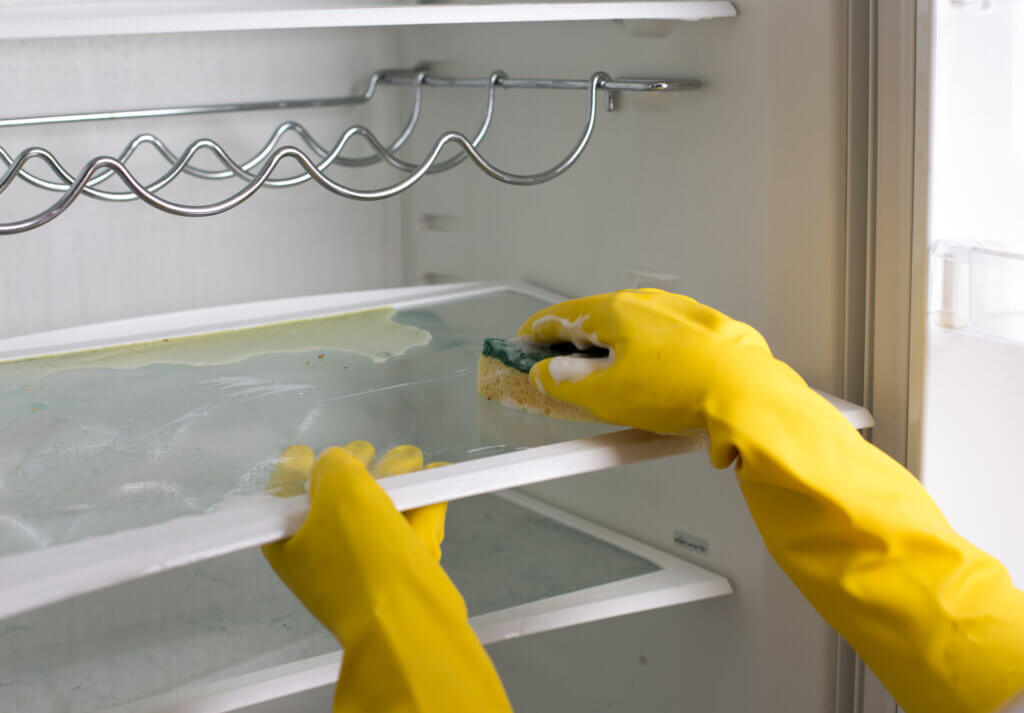
Protect the bottom of your vegetable crisper drawer using paper towels.
Of course you’ll have to change out the paper towels somewhat frequently, but this is a great way to keep fruits and veggies fresh and crisp and absorb any excess moisture that could lead to rotting or spoiling.
Keep an eye on refrigerator temperature.
You’ll want to make sure your fridge is at 40 degrees F or lower, according to the FDA.
Don’t overload your fridge. Food needs air circulation.
This one is fairly self explanatory! Bacteria will have a harder time growing and food will last longer if it has room to breathe.
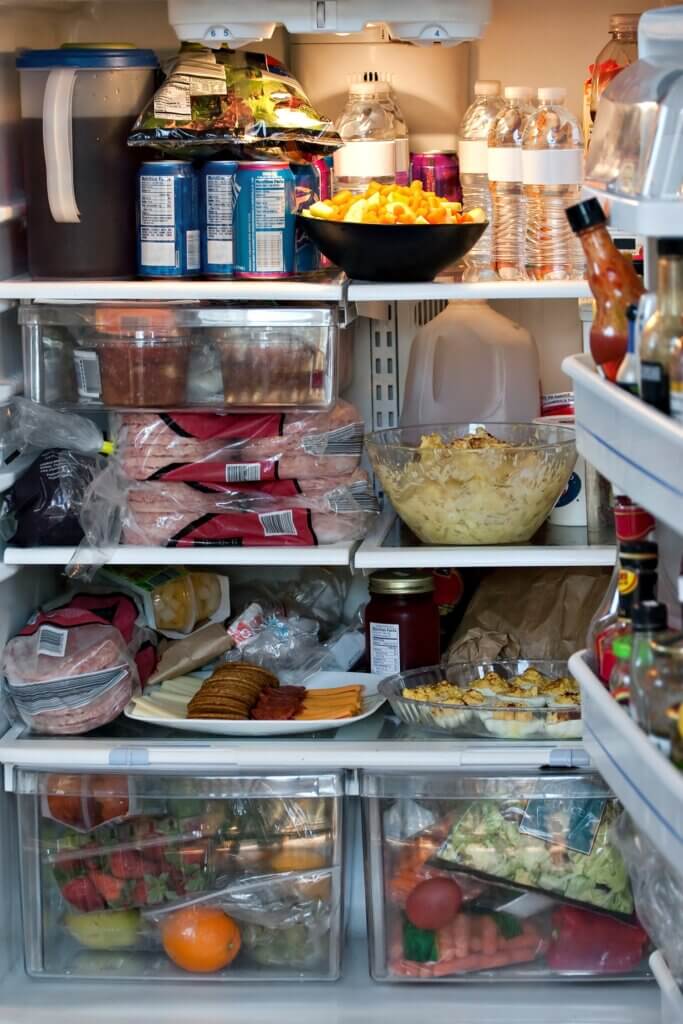
These refrigerator tips will work to help you keep your fridge in the best condition all year round.
You will also like:
Our top 11 tips to save time and money on doing laundry
The very BEST hacks to save money every single day
Super healthy, yet super cheap food to feed your family
